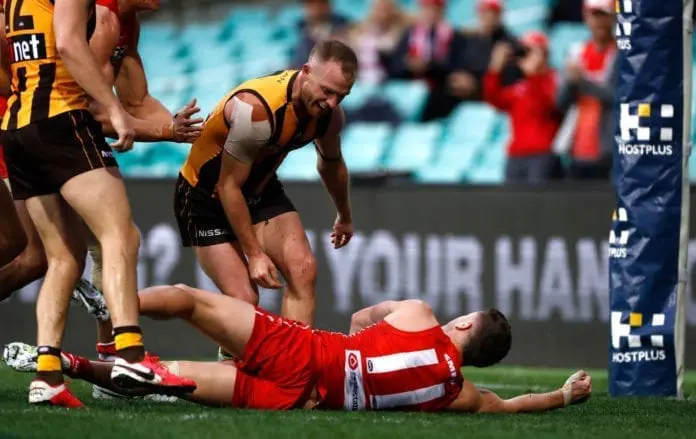The floating fixture was a staple of 2020 after original plans wee thrown out the window due to COVID and Melbourne's lockdown.
It worked really well and allowed the AFL to get a full season completed, an achievement that seemed less than likely at times. However, in 2021 it has not had the same effect.
While this year hasn't gone off without a hitch, the need for a floating fixture hasn't been warranted. Fans and clubs are all understanding that games may be moved at any point due to COVID but the not knowing until just a few weeks before hand isn't helping anyone.
The AFL claimed that the floating fixture would allow them to ensure prime time slots were given to teams who had earned the right to be there. This Friday night sees the Tigers host the Saints... One of these things is not like the other.

Only a few weeks ago we saw the Swans host the Hawks on Friday night footy. And while the Hawks got an upset win, the game looked much more suited to a Saturday twilight slot.
Fans who schedule their lives in winter around the footy are currently left in the lurch and risk missing seeing their team play if they dare make plans more then a few weeks ahead of any given unknown round.
Attendances have been down all season and you could argue a large part of that is down to the fact fans aren't able to make plans to suit their want to go to the football.
You want to tell your boss you need a Saturday or Sunday off for the footy? You'll have to wait until the last moment to ask because we don't know when anyone is playing beyond next week.
We take a look at whether the floating fixture is working or if we need a return to a set fixture in 2022.
Niesha Happell: I understand the purpose of the floating fixture and it has been a viable solution for the unpredictable and changing circumstances due to COVID-19. The ability to have a flexible fixture and adjust individual matches or entire rounds in the case of a COVID-19 outbreak has been imperative to the continuation of the 2021 season.

However, the floating fixture is not without it’s disadvantages. It is detrimental to the AFL as it is one of the contributing factors to the lack of crowd turnouts, it restricts casual workers that work weekends from attending. It stops large groups of supporters making plans to attend together. It also restricts supporters making plans to travel interstate to attend games.
It is a good solution in the short term. However, the AFL should look to return to a traditional fixture system at the beginning of next season.
Aidan O'Carroll : I don't mind the floating fixture, especially in this COVID era. It allows the AFL to adjust the venues, times etc.
In a normal situation where COVID isn't a factor, then I wouldn't like the floating fixture but in this situation I like it. I understand it would frustrate fans not knowing when and where their team will play, but I think the AFL needs to be able to alter the fixture depending on if there's any outbreaks of the virus.
The AFL can then set the big game matchups in the prime time slots as the season progresses.

Although the flexibility it provides allows for greater contests in stronger timeslots, it comes at the expense of clubs truly being able to prepare for matches, as well as fans potentially attending said games. As I am a fan myself, it is not a concept I can truly get behind.
Michael Georgiou: I don’t mind the floating fixture. In the two seasons so far affected by COVID, it has been great and very helpful, allowing AFL to be flexible with reallocating. As for the future, I think the floating fixture would be a good thing.
We have seen many times, people complaining about prime times slots being allocated to teams who aren’t performing well, the floating fixture ensures this won’t happen as often or at all. The downside is people can’t plan that far ahead to attend games, especially interstate, but overall, I think the floating fixture is a good thing and is working very well.






